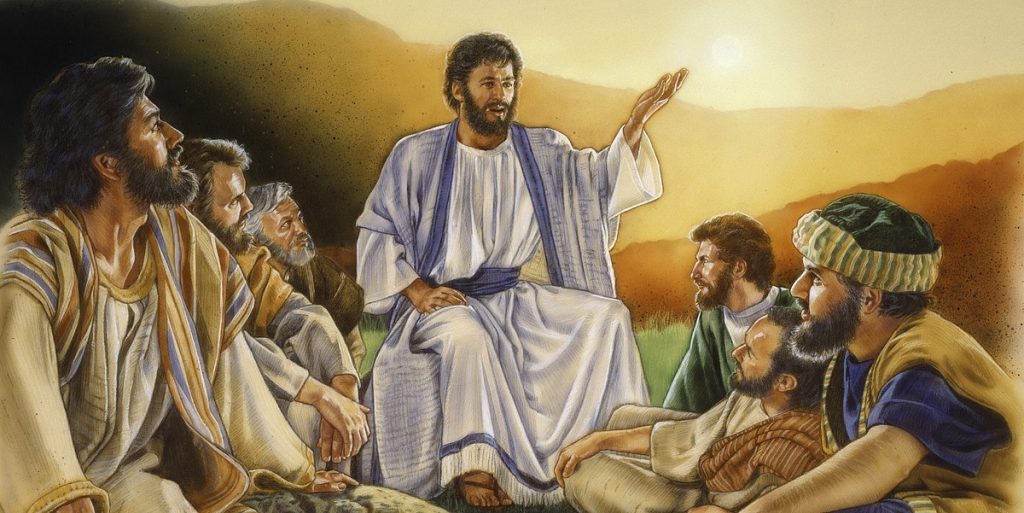SUNDAY, SEPTEMBER 25, 2022
TWENTY-SIXTH SUNDAY IN ORDINARY TIME
FIRST READING: AMOS 6:1, 4-7
RESPONSORIAL PSALM: PSALMS 146:7-10
SECOND READING: 1 TIMOTHY 6:11-16
GOSPEL: LUKE 16:19-31
What parable would make a man with three doctoral degrees (one in medicine, one in theology and one in philosophy) leave civilization with all of its culture and amenities and depart for the jungles of darkest Africa? What parable could induce a man, who was recognized as one of the best concert organists in all of Europe, to go to a place where there were no organs to play? What parable would so intensely motivate a man that he would give up a teaching position in Vienna, Austria to go and deal with people who were so deprived that they were still living in the superstitions of the dark ages? The man I am talking about, of course, is Dr. Albert Schweitzer. And the single parable that so radically altered his life, according to him was the parable of the Rich Man and Lazarus.
Both the first reading today from the Book of Amos and the Gospel today confront us with a very important question; ‘can I continue living in comfort while turning a blind eye to those around me who are in misery or in need?’ Amos is a prophet of social justice who spoke out against an unjust society. In the passage we read today, he denounces those who live a life of luxury, heedless of the misfortunes and miseries of others. Amos teaches us that concern for others is always a religious duty, a duty which binds us to make ourselves the neighbor of every person without exception and in a particular way to those challenged or in any kind of need.
After telling the parable of the dishonest steward and his critique of mammon, Luke tells us that the Pharisees mocked Jesus because they were lovers of money. That is the background of the parable of the rich man and Lazarus. This parable is similar to the parable of the Rich fool of Luke 12 and like it, is only found in the Gospel of St Luke. The parable of the rich man and Lazarus disposes of two main errors: that of those who denied the survival of the soul after death and, therefore, retribution in the next life; and that of those who interpreted material prosperity in this life as a reward for moral rectitude, and adversity as punishment. The parable teaches us that, immediately after death comes judgement. We will all be judged for what we did or did not do; that is “particular judgement,” and be rewarded or punished accordingly.

This is the only parable in all the Gospels where one of the characters is named. In all of the other parables, the characters remain nameless. But the beggar languishing at the rich man’s gate in stinking wretchedness has a name. The rich man is often given the name ‘Dives.’ But ‘Dives’ is only the Latin word for rich man. The rich man had all he could ever need; fine purple clothing and fine linen and feasting sumptuously every day. Lazarus on the contrary was poor and sat at the gate of the rich man covered with sores. He desired to eat crumbs from the rich man’s table. To underline the indignity of his situation, we are told, dogs which were considered unclean by the Jews came and licked his sores.
This parable does not tell us that the rich man did anything particularly wicked or evil. We are not even told that he was responsible for the poverty and misery of Lazarus. The parable does not tell us that Lazarus was a good man. It only tells us that Lazarus was poor and sat at the gate of the rich man. The question that immediately confronts us is why the rich man at his death was sent to a place of torment and Lazarus to a place of comfort, the bosom of Abraham. Was the rich man condemned because he was rich and had all the good things of life and feasted sumptuously every day? No. The rich man was condemned because he was self-centred and insensitive. He used his riches in a selfish way and was not sensitive to the needs of others. Sin is not just about what we do, say or think, it is also about what we failed to do or say. Was Lazarus rewarded with a place of consolation simply because he was poor? Keep in mind we were not told that he was a good man or even performed a single good deed. Scripture scholars find the answer to this question in the name given to him – Lazarus. In biblical stories, names are theological and convey something important about the character and personality of the person. Remember this is the only parable that one of the characters in the story was given a name. Lazarus is the Greek form of the Hebrew name Eleazar which means “God is my help.” Psalm 146: 5 says, “Blessed are those whose help is the God of Jacob, whose hope is in the Lord their God. Lazarus is not just a poor man (there are poor people who are grouchy and angry at God and everybody else for their poverty), he is “anawim.” Anawim is the Hebrew word in the Old Testament which describes the “poor ones who remained faithful to God in times of difficulty.” Lazarus is rewarded because he believes and trusts in God his wretchedness nonetheless.
Reflect today on how much God has blessed you and the greater population that continues to live in poverty and misery. Albert Schweitzer realized he could not live in luxury while turning a blind eye to the misery of others. Allow this parable to transform and influence you profoundly. God wants us to be selfless and attentive to the needs of others and to go out of our way to attend to the Lazarus living in misery at our gates and around us.
Happy Sunday

Fr Chidi Onwuka M,Ss.Cc
